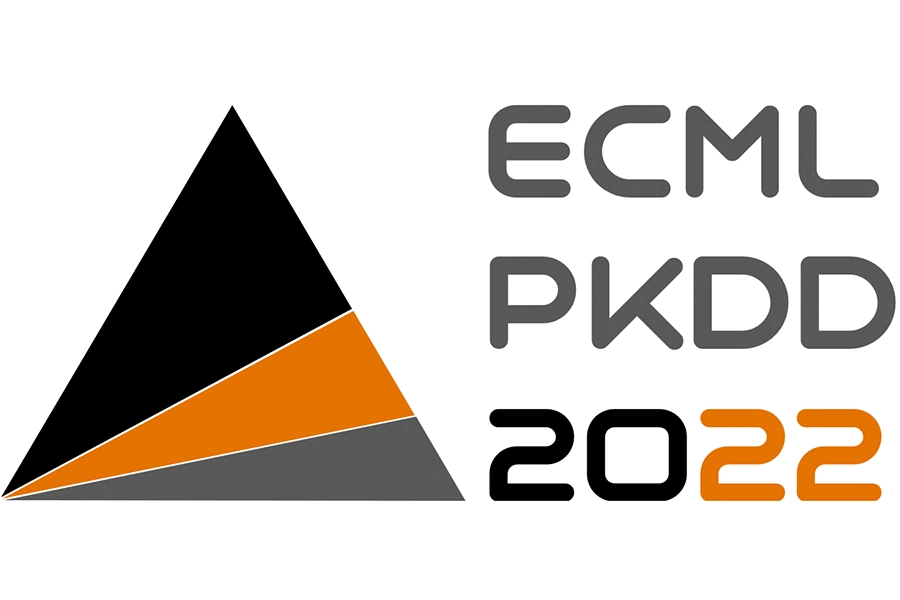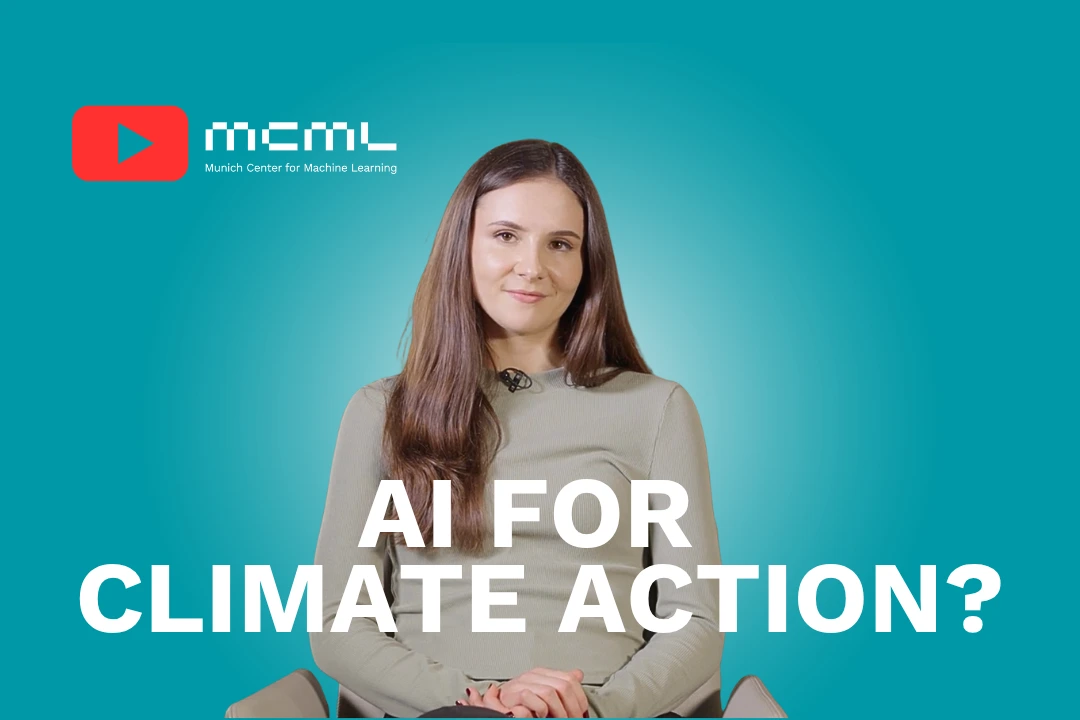14.09.2022

MCML Researchers With Seven Papers at ECML-PKDD 2022
European Conference on Machine Learning and Principles and Practice of Knowledge Discovery in Database (ECML-PKDD 2022). Grenoble, France, 19.09.2022–22.09.2022
We are happy to announce that MCML researchers are represented with seven papers at ECML-PKDD 2022. Congrats to our researchers!
Main Track (4 papers)
SEA: Graph Shell Attention in Graph Neural Networks.
ECML-PKDD 2022 - European Conference on Machine Learning and Principles and Practice of Knowledge Discovery in Databases . Grenoble, France, Sep 19-23, 2022. DOI
Abstract
A common problem in Graph Neural Networks (GNNs) is known as over-smoothing. By increasing the number of iterations within the message-passing of GNNs, the nodes’ representations of the input graph align and become indiscernible. The latest models employing attention mechanisms with Graph Transformer Layers (GTLs) are still restricted to the layer-wise computational workflow of a GNN that are not beyond preventing such effects. In our work, we relax the GNN architecture by means of implementing a routing heuristic. Specifically, the nodes’ representations are routed to dedicated experts. Each expert calculates the representations according to their respective GNN workflow. The definitions of distinguishable GNNs result from k-localized views starting from the central node. We call this procedure Graph textbf{S}htextbf{e}ll textbf{A}ttention (SEA), where experts process different subgraphs in a transformer-motivated fashion. Intuitively, by increasing the number of experts, the models gain in expressiveness such that a node’s representation is solely based on nodes that are located within the receptive field of an expert. We evaluate our architecture on various benchmark datasets showing competitive results while drastically reducing the number of parameters compared to state-of-the-art models.
MCML Authors

Christian Frey
Dr.
* Former Member
Factorized Structured Regression for Large-Scale Varying Coefficient Models.
ECML-PKDD 2022 - European Conference on Machine Learning and Principles and Practice of Knowledge Discovery in Databases . Grenoble, France, Sep 19-23, 2022. DOI
Abstract
Recommender Systems (RS) pervade many aspects of our everyday digital life. Proposed to work at scale, state-of-the-art RS allow the modeling of thousands of interactions and facilitate highly individualized recommendations. Conceptually, many RS can be viewed as instances of statistical regression models that incorporate complex feature effects and potentially non-Gaussian outcomes. Such structured regression models, including time-aware varying coefficients models, are, however, limited in their applicability to categorical effects and inclusion of a large number of interactions. Here, we propose Factorized Structured Regression (FaStR) for scalable varying coefficient models. FaStR overcomes limitations of general regression models for large-scale data by combining structured additive regression and factorization approaches in a neural network-based model implementation. This fusion provides a scalable framework for the estimation of statistical models in previously infeasible data settings. Empirical results confirm that the estimation of varying coefficients of our approach is on par with state-of-the-art regression techniques, while scaling notably better and also being competitive with other time-aware RS in terms of prediction performance. We illustrate FaStR’s performance and interpretability on a large-scale behavioral study with smartphone user data.
MCML Authors
Reinforcement Learning for Multi-Agent Stochastic Resource Collection.
ECML-PKDD 2022 - European Conference on Machine Learning and Principles and Practice of Knowledge Discovery in Databases . Grenoble, France, Sep 19-23, 2022. DOI
Abstract
Stochastic Resource Collection (SRC) describes tasks where an agent tries to collect a maximal amount of dynamic resources while navigating through a road network. An instance of SRC is the traveling officer problem (TOP), where a parking officer tries to maximize the number of fined parking violations. In contrast to vehicular routing problems, in SRC tasks, resources might appear and disappear by an unknown stochastic process, and thus, the task is inherently more dynamic. In most applications of SRC, such as TOP, covering realistic scenarios requires more than one agent. However, directly applying multi-agent approaches to SRC yields challenges considering temporal abstractions and inter-agent coordination. In this paper, we propose a novel multi-agent reinforcement learning method for the task of Multi-Agent Stochastic Resource Collection (MASRC). To this end, we formalize MASRC as a Semi-Markov Game which allows the use of temporal abstraction and asynchronous actions by various agents. In addition, we propose a novel architecture trained with independent learning, which integrates the information about collaborating agents and allows us to take advantage of temporal abstractions. Our agents are evaluated on the multiple traveling officer problem, an instance of MASRC where multiple officers try to maximize the number of fined parking violations. Our simulation environment is based on real-world sensor data. Results demonstrate that our proposed agent can beat various state-of-the-art approaches.
MCML Authors

Max Berrendorf
Dr.
* Former Member
Risk-Aware Reinforcement Learning for Multi-Period Portfolio Selection.
ECML-PKDD 2022 - European Conference on Machine Learning and Principles and Practice of Knowledge Discovery in Databases . Grenoble, France, Sep 19-23, 2022. DOI
Abstract
The task of portfolio management is the selection of portfolio allocations for every single time step during an investment period while adjusting the risk-return profile of the portfolio to the investor’s individual level of risk preference. In practice, it can be hard for an investor to quantify his individual risk preference. As an alternative, approximating the risk-return Pareto front allows for the comparison of different optimized portfolio allocations and hence for the selection of the most suitable risk level. Furthermore, an approximation of the Pareto front allows the analysis of the overall risk sensitivity of various investment policies. In this paper, we propose a deep reinforcement learning (RL) based approach, in which a single meta agent generates optimized portfolio allocation policies for any level of risk preference in a given interval. Our method is more efficient than previous approaches, as it only requires training of a single agent for the full approximate risk-return Pareto front. Additionally, it is more stable in training and only requires per time step market risk estimations independent of the policy. Such risk control per time step is a common regulatory requirement for e.g., insurance companies. We benchmark our meta agent against other state-of-the-art risk-aware RL methods using a realistic environment based on real-world Nasdaq-100 data. Our evaluation shows that the proposed meta agent outperforms various benchmark approaches by generating strategies with better risk-return profiles.
MCML Authors
Workshops (3 papers)
Developing Open Source Educational Resources for Machine Learning and Data Science.
Teaching Machine Learning and Artificial Intelligence Workshop @ECML-PKDD 2022 - 3rd Teaching Machine Learning and Artificial Intelligence Workshop at the European Conference on Machine Learning and Principles and Practice of Knowledge Discovery in Databases . Grenoble, France, Sep 19-23, 2022. URL
Abstract
Education should not be a privilege but a common good. It should be openly accessible to everyone, with as few barriers as possible; even more so for key technologies such as Machine Learning (ML) and Data Science (DS). Open Educational Resources (OER) are a crucial factor for greater educational equity. In this paper, we describe the specific requirements for OER in ML and DS and argue that it is especially important for these fields to make source files publicly available, leading to Open Source Educational Resources (OSER). We present our view on the collaborative development of OSER, the challenges this poses, and first steps towards their solutions. We outline how OSER can be used for blended learning scenarios and share our experiences in university education. Finally, we discuss additional challenges such as credit assignment or granting certificates.
MCML Authors
Efficient Automated Deep Learning for Time Series Forecasting.
Workshops @ECML-PKDD 2022 - Workshops at the European Conference on Machine Learning and Principles and Practice of Knowledge Discovery in Databases . Grenoble, France, Sep 19-23, 2022. DOI
Abstract
Recent years have witnessed tremendously improved efficiency of Automated Machine Learning (AutoML), especially Automated Deep Learning (AutoDL) systems, but recent work focuses on tabular, image, or NLP tasks. So far, little attention has been paid to general AutoDL frameworks for time series forecasting, despite the enormous success in applying different novel architectures to such tasks. In this paper, we propose an efficient approach for the joint optimization of neural architecture and hyperparameters of the entire data processing pipeline for time series forecasting. In contrast to common NAS search spaces, we designed a novel neural architecture search space covering various state-of-the-art architectures, allowing for an efficient macro-search over different DL approaches. To efficiently search in such a large configuration space, we use Bayesian optimization with multi-fidelity optimization. We empirically study several different budget types enabling efficient multi-fidelity optimization on different forecasting datasets. Furthermore, we compared our resulting system, against several established baselines and show that it significantly outperforms all of them across several datasets.
MCML Authors
Accelerating Diversity Sampling for Deep Active Learning By Low-Dimensional Representations.
IAL @ECML-PKDD 2022 - 6th International Workshop on Interactive Adaptive Learning at the European Conference on Machine Learning and Principles and Practice of Knowledge Discovery in Databases . Grenoble, France, Sep 19-23, 2022. PDF GitHub
Abstract
Selecting diverse instances for annotation is one of the key factors of successful active learning strategies. To this end, existing methods often operate on high-dimensional latent representations. In this work, we propose to use the low-dimensional vector of predicted probabilities instead, which can be seamlessly integrated into existing methods. We empirically demonstrate that this considerably decreases the query time, i.e., time to select an instance for annotation, while at the same time improving results. Low query times are relevant for active learning researchers, which use a (fast) oracle for simulated annotation and thus are often constrained by query time. It is also practically relevant when dealing with complex annotation tasks for which only a small pool of skilled domain experts is available for annotation with a limited time budget.
MCML Authors

Max Berrendorf
Dr.
* Former Member
Related

29.09.2025
Machine Learning for Climate Action - With Researcher Kerstin Forster
Kerstin Forster researches how AI can cut emissions, boost renewable energy, and drive corporate sustainability.

26.09.2025
Björn Ommer Featured in WELT
MCML PI Björn Ommer told WELT that AI can never be entirely neutral and that human judgment remains essential.

25.09.2025
Björn Schuller Featured in Macwelt Article
MCML PI Björn Schuller discusses in Macwelt how Apple Watch monitors health, detects subtle changes, and supports early intervention.

24.09.2025
MCML PI Björn Ommer Featured on ZDF NANO Talk
MCML PIs Björn Ommer & Alena Buyx discuss AI’s essence on ZDF NANO Talk, covering tech, ethics, and societal impact.













